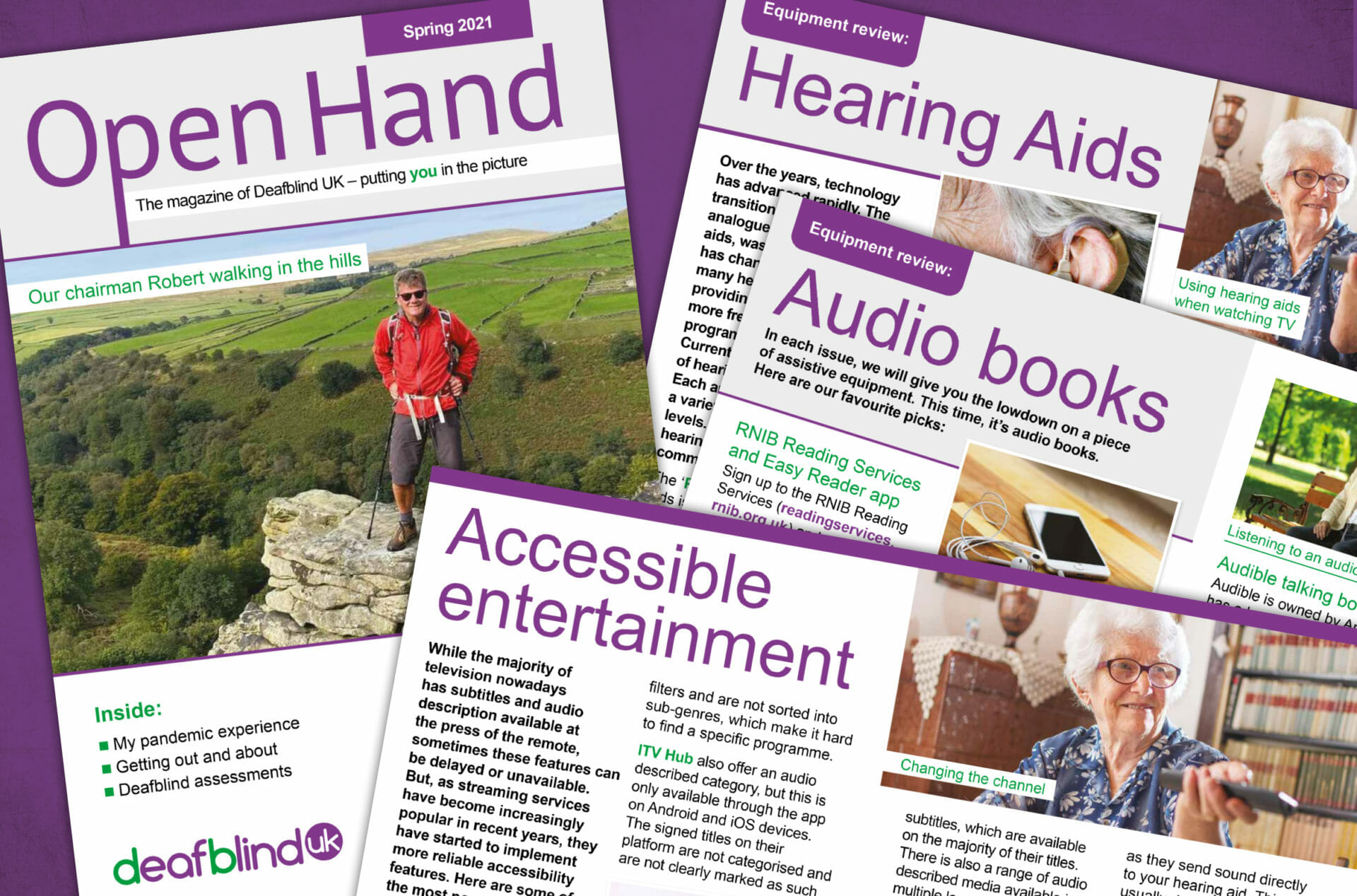Deafblindness affects everyone in different ways. This will depend on the nature of your sight and hearing loss; what has caused you to become deafblind; other medical conditions and also your own attitude, personality and life history.
Living with deafblindness does not always have a significant impact on your independence. Some people go about their daily lives with just a few minor adjustments or some well-planned technology. Others will need more support, such as a communicator guide or support worker, to help them with everyday tasks. For some people, simple changes to how their friends and family behave and communicate can make a huge difference to them.
You may find that as your sight and hearing have worsened, you have found creative ways to manage around your home and when you’re out and about. For example, you might know how many steps it is to your neighbour’s house, or you might know that you keep the shampoo on the right and the conditioner on the left. We often put these strategies in place without realising we’re doing so – and sometimes even before we have acknowledged that our sight and hearing are changing.
Deafblindness and mental wellbeing
Whether you are coping with a new diagnosis or you have been living with sensory loss for years, a lot of people find that it affects the way they feel.
What you might be feeling:
- Low or depressed
- Shock, that your lifestyle might change
- Anxiety about what the future holds
- Sadness that you might not be able to do the things you enjoy
- Stress, from trying to do everyday activities that are now harder and slower
- Loss of identity and self-worth
It is normal to feel sad when you no longer have the sight and hearing that you are used to and when you know that this will change aspects of your life. It is important to know that this is all completely normal, and that you should seek support if you are finding things difficult.
Click here to download our ‘live better with sight and hearing loss’ leaflet

